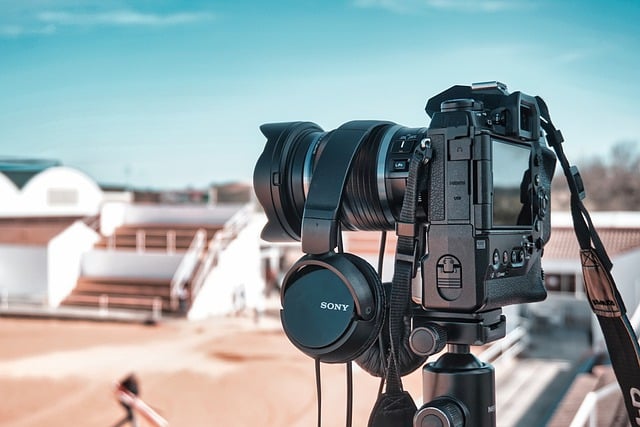In today's digital era, where content consumption is diverse and platform-agnostic, the ability to convert DivX to MP4 has become crucial. DivX, known for its high-quality video compression, faces compatibility issues on modern devices and software, prompting a demand for efficient conversion tools. MP4, as a widely supported format, ensures seamless playback. Technological advancements have overcome initial challenges, allowing users to easily navigate between formats while preserving video quality and enhancing content accessibility across diverse devices and platforms, ultimately improving the user experience.
In the rapidly evolving digital landscape, the ability to seamlessly convert formats is pivotal. This article explores a groundbreaking achievement in media technology: the evolution from DivX to MP4. We delve into the necessity of such conversion, particularly regarding compatibility and accessibility across devices. By tackling technical hurdles, this innovation has not only enhanced user experience but also revolutionized content distribution, making it a true game-changer for digital media enthusiasts worldwide. Discover how converting DivX to MP4 has streamlined multimedia access.
What is DivX and MP4?

DivX and MP4 are two formats used in digital media, each with its unique role and advantages. DivX, developed by DivX Corporation, is a video compression format known for providing high-quality video content at relatively small file sizes. It’s been a pioneer in digital media technology, allowing users to easily convert DivX to MP4.
MP4, on the other hand, stands for MPEG-4 Part 14 and is a container format that can store various types of media, including video, audio, and subtitles. It’s widely supported across devices and platforms, making it a popular choice for sharing and streaming content. Today, converting between DivX and MP4 has become seamless thanks to advancements in technology, offering users flexibility and convenience when enjoying their digital media collections.
The Need for Conversion: Compatibility and Accessibility

In today’s digital age, where content consumption is increasingly diverse and platform-agnostic, the need for versatile file formats cannot be overstated. The traditional DivX format, known for its high-quality video compression, has historically presented a challenge in terms of compatibility and accessibility due to its limited support across various devices and software. This has led to a growing demand for efficient methods to convert DivX to MP4, a widely supported and compatible format that ensures videos can be watched seamlessly on virtually any device or platform.
The rise of streaming services, mobile viewing, and multimedia applications has underscored the importance of converting video formats to meet evolving consumer needs. By converting DivX to MP4, users gain access to a universal format that not only preserves video quality but also offers improved compatibility with modern playback systems. This conversion process is crucial for content creators, distributors, and consumers alike, ensuring that multimedia experiences are accessible and enjoyable across the board.
Pioneering the Conversion Process: Overcoming Challenges

The journey towards seamlessly converting DivX to MP4 format was far from straightforward, filled with technical hurdles that required innovative solutions. Early attempts often faced compatibility issues due to the unique nature of DivX’s compression algorithms. However, pioneering developers persevered, recognizing the growing demand for a simple and efficient way to convert this multimedia format.
They navigated through complex coding, ensuring the preservation of video quality while overcoming encoding problems. This involved meticulously tweaking parameters and developing sophisticated software that could handle the intricacies of both formats. Their relentless efforts resulted in groundbreaking technology, transforming the process from cumbersome to seamless, making it accessible for everyday users to effortlessly convert DivX to MP4.
Benefits and Impact of Successful Conversion Technology

The successful implementation of technology that enables smooth conversion from DivX to MP4 format brings a multitude of advantages and impacts to digital media users. One of the key benefits is enhanced accessibility; this conversion allows content creators and consumers alike to enjoy media files across various devices and platforms, breaking down compatibility barriers. The convenience it offers cannot be overstated, especially for those with older media libraries still using DivX format.
Additionally, converting to MP4 format significantly improves file management. MP4 is a widely supported and compatible format, making it easier to share and stream content online without worrying about outdated players or formats. This efficiency in media handling fosters a better user experience and encourages the adoption of modern digital media technologies.
The journey towards seamlessly converting DivX to MP4 has been a pioneering feat in digital media technology. By overcoming significant challenges, this innovation has not only enhanced compatibility and accessibility but also revolutionized how we consume content. The successful implementation of advanced conversion processes has ensured that users can enjoy their favorite videos without format restrictions, marking a significant milestone in the ever-evolving world of digital media.
